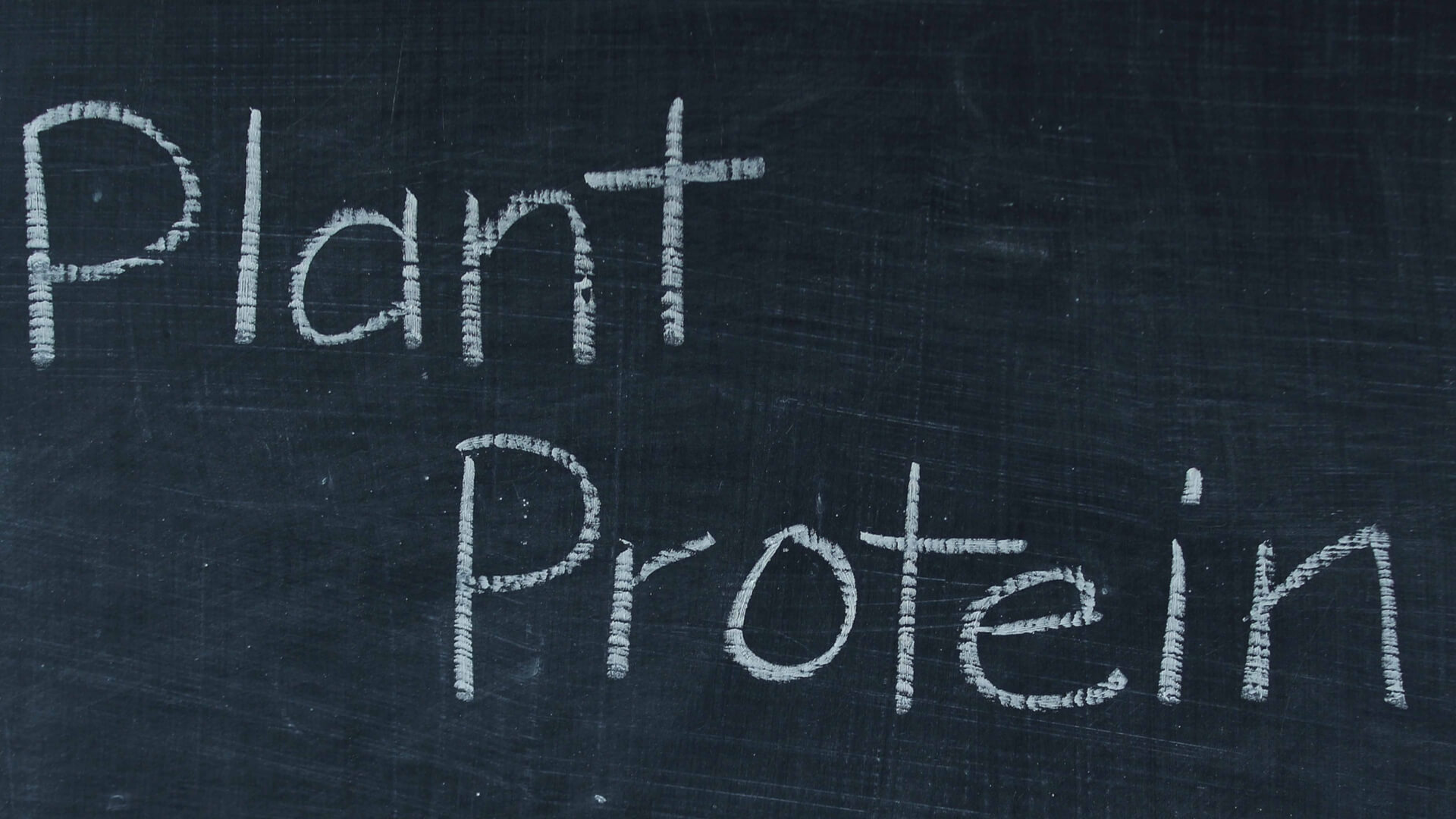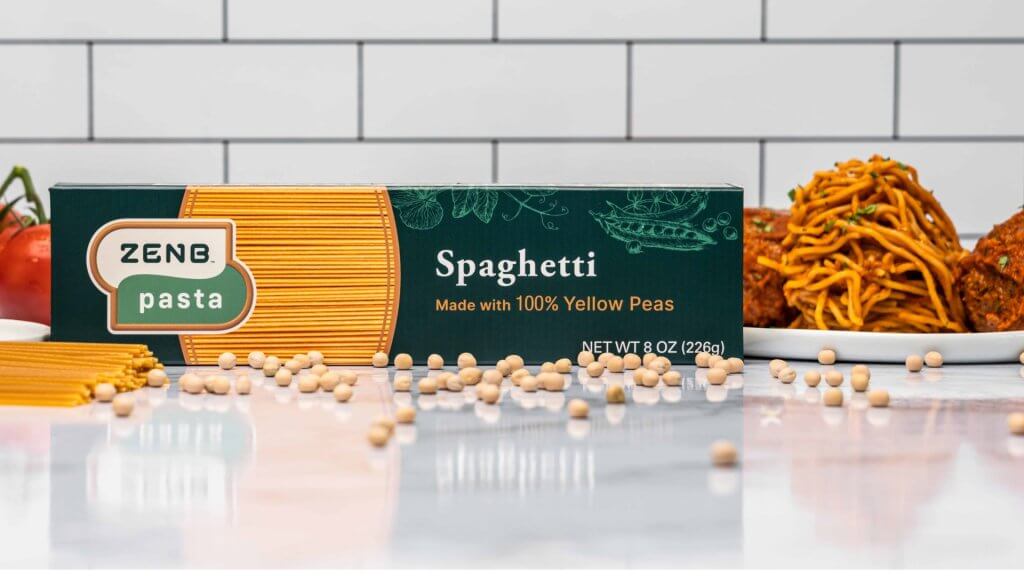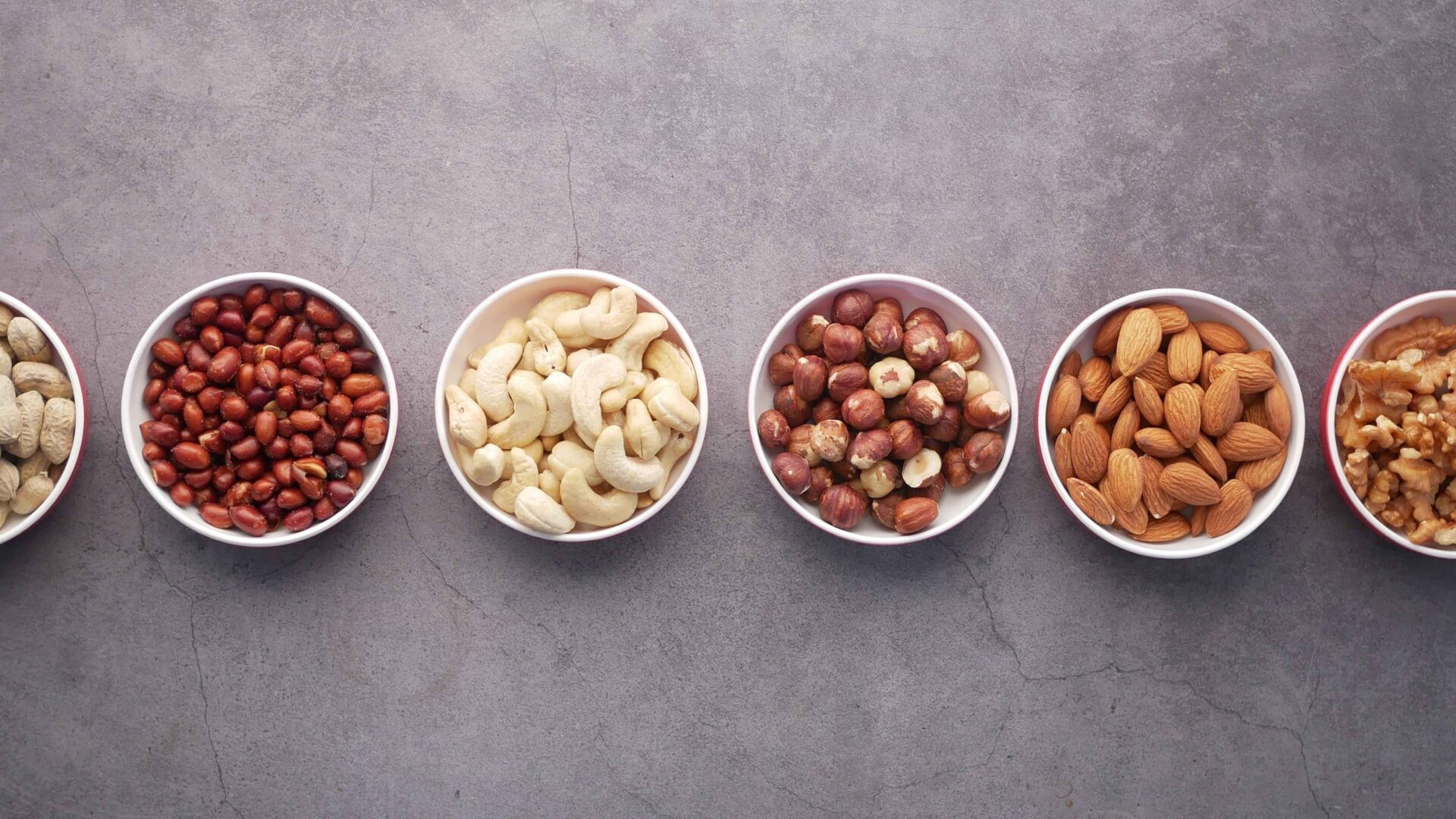
There was a time when you could go weeks without hearing the word protein. Not anymore. As more of us cut down on meat and dial up the plants on our plates, a host of questions have emerged. Few have taken the spotlight like protein.
Apparently, we need it. But what is it, why and how much? If meat is a top source, how do we find enough of it in our new veg-heavy world?
We’re glad you asked…
THE PROTEIN LOWDOWN
Why do we need protein?
We’re made up of protein. Every cell in our bodies contains protein and we need it to help us grow, to maintain our bodies and to repair them. Your bones and muscles are special fans of the stuff.
Proteins are made up of amino acids and while many naturally occur in the body, there are nine types that we need to get from our food.
How much should I eat?
It depends on who you are. Most adults will need around 0.75g of protein per kilo of body weight. That works out at around 45g for the ‘average’ woman and 55g for the ‘average’ man.
That’s about two portions of food containing protein, when a portion of protein should fit into the palm of your hand.
In the UK we tend to eat more than the minimum requirement, but if that’s coming in large part from meat, there are recognised health risks, and we should aim to get more protein from the wonderful world of plants.
What’s the difference between plant and animal protein?
From chia seeds to chicken, protein is protein. The only difference is that meat is a complete protein because it contains all nine essential amino acids.
While some plants do contain all nine, most are incomplete. However, so long as you have a diet that includes nuts, seeds, whole grains, legumes and vegetables you’ll get all you need.
Plus, picking up more of your protein from plants delivers a medley of vitamins, minerals and fibre, with less saturated fat, salt and cholesterol.
How do I shift to a plant-based diet?
We’re all wonderfully individual, so there’s no one-size way to make the switch. But small steps and going at your own pace help.
Maybe start with one meat and dairy-free day a week. Or make one meal a day entirely plant based.
But the most important thing is to remind yourself of your motivation. Whether it’s health, environmental or moral, read the blogs, watch the videos and have the chats that keep your reason in plain sight.
And here’s a handy guide to the plants flying high in the high protein league.
OUR TOP 25 HIGH PROTEIN PLANTS
YELLOW PEAS
What are they?: a mini powerhouse of good things, this clever type of field pea has a slightly yellow skin and an eco-friendly attitude. It is light on water consumption and puts nitrogen back in the soil.
Health benefits: along with a hefty protein punch and plenty of tummy-loving fibre, yellow peas are full of things called phytonutrients. These are some of the very good guys in the food chain that fight the free radicals behind nasty diseases like cancer.
Protein per 100g: 21.3g

Did you know you can get your plant-based protein fix from pasta?
ZENB created the UK’s first Yellow Pea Pasta, packing 21g of protein in just one serving of 100g of pasta. Plus, 100% gluten-free, fully vegan and made from just the yellow pea, nothing else.
If you want a simple and tasty way to get plant-based protein into your diet, try ZENB’s award-winning pasta at 40% off at zenb.co.uk. If you don’t have much time to cook, try ZENB Pasta Agile: a new type of quick cook pasta, ready in 2 minutes.
LENTILS
What are they: the base of many student burgers. Lentils comes from the Latin word for ‘little lens’. Cute. They’re legumes, like beans, and cousins to chickpeas and peanuts. Lovely in a dhal.
Health benefits: by now]you’ll have guessed there’s protein. They’re also high in fibre and low in fat, so a good meat substitute. They’re packed with folate, phosphorus and potassium, which are good for the heart, blood pressure and cholesterol.
Protein per 100g: 8.8g
CHICKPEAS
What are they: chickpeas are another little legume that originated in the Middle East and took the world by storm. They come from the plant family Fabaceae, which we think is appropriate for this fab ‘superfood’.
[*bold*]Health benefits: [*endbold*]chickpeas are teeming with good things like fibre, B vitamins, iron and manganese, which improve digestion, help manage blood sugar levels, lower blood pressure and reduce your risk of diseases including cancer.
Protein per 100g: 9g
BEANS
What: yes, we know there are a bunch of different beans, but they’re all closely related and when it comes to what’s inside, even their mother would find it tough to tell them apart. Also a seed of the Fabaceae plant family.
Health benefits: the flag bearers are soybeans with all nine amino acids to qualify as ‘complete’ proteins. Most beans contain a good amount of fibre, and folates for healthy blood. There are also those handy antioxidants. Most beans enhance gut health, with black beans leading the charge for healthy tummies.
Protein per 100g: a range, but we’ll go for baked beans, which is 4g
EDAMAME
What – a name that rolls off the tongue and a taste you want to stay on it. A bit nutty, buttery with a hint of sweet. Edamame are immature soybeans and enhance any soup, stew or salad.
Health benefits: Edamame beans have an impressive line-up of vitamins and minerals that can help lower cholesterol, promote healthy blood sugar levels, fight certain cancers, and are rich in vitamin K that helps heal wounds.
Protein per 100g: 11g
QUINOA
What – quinoa is a grain from South America that was living the quiet life until it was ‘discovered’. The rest is history. The Inca thought it was sacred, and for good reason.
Health benefits: with more fibre per gram than brown rice and all nine amino acids, quinoa has a place on the ‘superfood’ podium. It’s loaded with nutrients like heart-healthy omega-3, phosphorus, copper, iron, B vitamins and antioxidants. bad news for cholesterol, chronic diseases and things that upset your stomach.
Protein per 100g: 11g
TOFU
What – the bean curd that’s done a lot of the heavy-lifting in the world of meat substitutes. Made from soya milk, it’s essentially soya cheese that’s versatile enough to play many roles. A long-time staple in Thai and Chinese cuisine.
Health benefits: another of the plant-based complete proteins that give meat a run for its money. Rich in calcium for healthy bones and teeth and good at lowering cholesterol, tofu also has a squad of particularly powerful antioxidants that hunt down even the most elusive free radicals behind chronic diseases.
Protein per 100g: 8.1g
BROWN RICE
What – whole grain rice that’s had the outer husk removed but keeps the bran and germ where most of the fibre, vitamins and minerals hang out. White rice has had these removed for easier cooking.
Health benefits: that clever bran layer contains protective compounds that play a role in preventing a variety of diseases, while whole grains like brown rice are thought to reduce the risk of heart disease and type 2 diabetes. It also has a collection of minerals that are good for bones, the immune system and muscles.
Protein per 100g: 8.1g
SEITAN
What – since seitan (pronounced say-tan), comes from the Japanese for ‘made of protein’ it’s a big hitter for team plant protein. Basically, the gluten of wheat, it’s a good meat mimic.
Health benefits: with a protein punch similar to chicken, low in fat and brimming with minerals, seitan is a goldmine of goodness – unless you’re gluten free we’re afraid. A highlight is a big dose of the antioxidant mineral selenium, which may help protect against heart disease, boosts immune systems and is good for the brain.
Protein per 100g: 75g. That’s a lot!
OATS
What –much more than a carb, these grains are milled, rolled and turned into flakes or flour for some of our best food friends such as porridge, oatmeal and bread.
Health benefits: here’s a good one. Oats have vitamin B6 which is essential for… metabolising protein. It’s also good for the central nervous system, while oat beta-glucan has been shown to lower cholesterol and help control blood sugar levels.
Protein per 100g: 11.2g for wholemeal flour
ALMONDS
What – hold onto your hats, almonds aren’t actually nuts but the edible seed of the almond tree. Delicious shelled or blanched.
Health benefits: high in fat, but the really good monounsaturated type that protects the heart. Almonds are a good source of nutrients important for brain health, including vitamin E, folate and fatty acids. Meanwhile your gut gets a helping hand from the fibre.
Protein per 100g: 21g
WALNUTS
What – the wrinkliest of all the nuts, walnuts are small, globe-shaped, and with a hard shell. When you split it you get two lovely walnut slices. Tasty raw or roasted.
Health benefits: loaded with omega-3 fatty acids, vitamin E and folate, walnuts are another plant-based boost for your brain. Omega-3 can also help your mood, while walnut oil has heart-healthy qualities. And just for good measure a walnut’s flavonoids are antioxidants, anti-inflammatory and anti-viral.
Protein per 100g: 15.23g
CASHEW NUTS
What – another seed masquerading as a nut, cashews have long been prized for their high nutrition and versatility. Fun fact, they’re hand shelled.
Health benefits: there’s more of those lovely monounsaturated fatty acids, and a host of vitamins and minerals for overall health, such as magnesium, selenium and iron. A star performer is vitamin K, needed for blood-clotting, healing wounds and healthy bones.
Protein per 100g: 18g
BRAZIL NUTS
What – that lovely big nut with a smooth and buttery texture that’s delicious raw, blanched, or coated in chocolate. It comes from the Brazil Nut tree, surprisingly, that grows up to 49m.
Health benefits: brazil nuts might be big, but they still punch way above their weight as nutritional powerhouses. High in monounsaturated fats that love the heart and hate cholesterol, brazil nuts are also nature’s richest source of our old friend selenium.
Protein per 100g: 14.32g

PUMPKIN SEEDS
What – the often cruelly overlooked seeds from the centre of pumpkins or other squash, pumpkin seeds are big in Mexican cuisine and provide a healthy snack by the handful.
Health benefits: there’s plenty of fibre hiding out in those little seeds, while magnesium helps regulate blood pressure, and unsaturated fatty acids and antioxidants do their thing – especially targeting breast, prostate and colon cancer. There’s also an amino acid that helps you sleep.
Protein per 100g: 29.8g
CHIA SEEDS
What – another little seed to be honoured with superfood status, they can be sprinkled whole or ground on cereal or yoghurt and absorb liquid to help thicken sauces.
Health benefits: ok, are you sitting comfortably? We’ve got calcium, magnesium and phosphorus for, among other things, good bone health. Polyunsaturated fat, fibre and anti-inflammatories for a healthy heart, lowering blood pressure and improving blood sugar levels. Oh, and fibre.
Protein per 100g: 29.8g
HEMP SEEDS
What – little seeds from the cannabis sativa plant. No, not that! Like chia, sprinkle them whole or ground on cereal, yoghurt or salads, add to smoothies or baked goods.
Health benefits: another member of the protein first team, it’s a complete one with 25% of its calories in the form of essential amino acids. One of them, arginine, helps lower blood pressure. There’s also omega-3 and omega-6 fatty acids that boost the immune system and combined may contribute to skin health.
Protein per 100g: 30g
BUCKWHEAT
What – it may sound like something from the Wild West, but buckwheat is a contender for quinoa’s crown. It’s actually a fruit seed, related to rhubarb but can be used like a grain to sub for couscous and rice.
Health benefits: ladled with antioxidants, buckwheat has a low to medium glycaemic index which means it’s good at regulating your blood sugar. The line-up is completed by fibre and magnesium for your heart.
Protein per 100g: 13.3g
PEANUT BUTTER POWDER
What – a close companion of peanut butter (the name gives it away) this is the result of roasting peanuts and pressing them to remove most of the oil. A nice way to add peanut flavour and protein to baked goods, oatmeal, smoothies and yoghurt.
Health benefits: a complete protein, and plenty of it thanks to peanuts being the premier protein nut. Also a good source of fibre, monounsaturated fats and vitamin E.
Protein per 100g: 49g
BROCCOLI
What – flying the flag for veggies, broccoli is best friends with cauliflower, kale and cabbage in the nutrition rich brassica family.
Health benefits: broccoli is a star performer for good food, so we’ll pick out a few of our favourites. There’s a phytochemical called sulforaphane that’s good for your heart, fights cancers, and may help naturalise airborne toxins like cigarette smoke. It also has carotenoids which are good for your eyes. Oh, and it’s a complete protein.
Protein per 100g 2.8g
BRUSSELS SPROUTS
What – Brussels sprouts often only come out of the shadows at Christmas. But these sweet and nutty cousins of the cabbage are nutritional heavyweights all year round.
Health benefits: just eight Brussels sprouts count as one of your 5-a-day, while clever compounds protect against cancer-causing nasties and contribute to heart health. Rich in sulphur that’s good for your gut, with an antioxidant linked to reducing the risk of type-2 diabetes, take a bow Brussels sprouts.
Protein per 100g: 2.6g
SPINACH
What – almost a byword for being healthy, leafy green spinach is a member of the Chenopodiaceae family and you can mention that at your next dinner party.
Health benefits: Help keep your eyesight bright with a collection of carotenoids, which are also anti-inflammatory and anti-cancerous. Nitrates reduce blood pressure, and vitamin K, magnesium and phosphorus give your bones a boost. Oh, by the way, complete protein alert!
Protein per 100g: 2.9g
CAULIFLOWER
What – a Brassica like broccoli, cauliflower is more than the vehicle for cheese. It’s been used as an alternative to rice and served up in steak form.
Health benefits: like broccoli, cauliflower is a veggie steeped in good things. Antioxidants and compounds battle cancer and give your heart a helping hand, while a big serving of sulphur is stomach friendly and boosts your immune system. What’s more your mood, memory and general brain health will benefit from the presence of choline.
Protein per 100g: 2g
NUTRITIONAL YEAST
What – this powdered yeast has a cheesy flavour and can be treated like grated parmesan or added to stews and soups.
Health benefits: it’s not called nutritional for nothing, and this feisty food supports the immune system and fights inflammation from bad bacteria. Some research gives it a gold star on skin care. vitamin B12 is sometimes added, which gives you energy, and folic acid, which is an important support in pregnancy.
Protein per 100g: 45g
SWEETCORN
What – those little golden nuggets that cluster around a core or sometimes turn up in a tin. Sweet and juicy and best cooked simply to be as fresh as possible.
Health benefits: sweetcorn has plenty of fibre to keep tummies happy and help protect your heart, while your central nervous system is supported by vitamin B1, and potassium and magnesium help keep bones and muscles in tip-top condition.
Protein per 100g: 45g
Final Thoughts
Protein is essential for your body to stay healthy and work the way it should. It fuels your body, helps fight infection, keeps cells healthy and creates new ones.
It’s a myth that you need meat. Tuck into a range of the star performers in our list and you’ll get all you need with protein to spare. And find delicious and exciting new ways to eat while you’re at it.
















